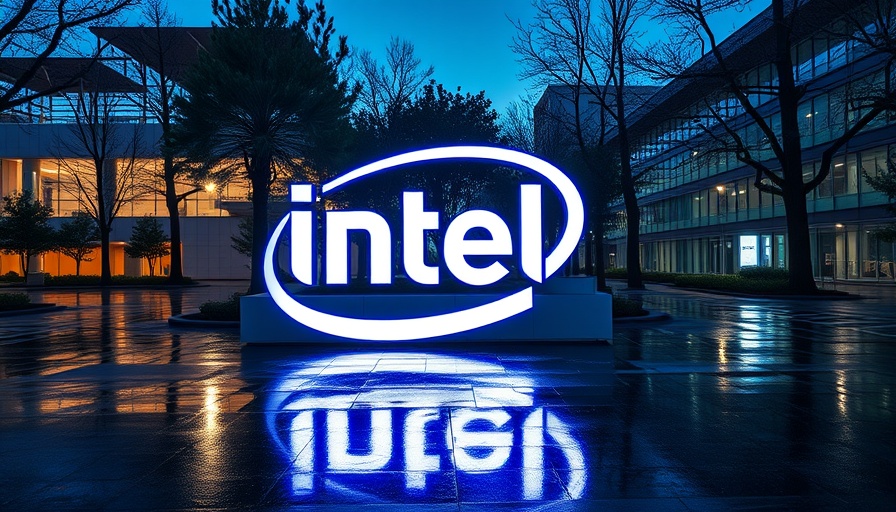
When Government Meets Business: The Intel Dilemma
Imagine you’re trying to run a successful bakery, and your biggest customer—the government—decides to get involved in your business decisions. Sounds like a plot twist from a sitcom! Well, that’s what Intel is facing right now, as the Trump administration has a firm grip on its ability to sell its struggling foundry business. According to reports from the Financial Times, this has huge implications for Intel as it navigates the choppy waters of the semiconductor industry.
Understanding the Nuts and Bolts of the Deal
Recently, during a Deutsche Bank conference, Intel CFO David Zinsner revealed that the deal gave the U.S. government a 10% equity stake in the company. What does this mean? Essentially, if Intel tries to spin off or sell its foundry business, which has been struggling with losses up to $3.1 billion, the government will step in with a potential extra 5% ownership. This could seriously restrict Intel’s options moving forward.
What's a Foundry Business Anyway?
For those of us who are not chip industry insiders (which is probably most of us), a foundry business is where companies produce semiconductor chips on behalf of other firms. Think of it like a factory where different brands send their blueprints to get their products made. Intel’s foundry segment is a key player in this competition, especially as other manufacturers like Taiwan Semiconductor Manufacturing Company (TSMC) lead in global production.
Why Restricting Intel Is a Big Deal
Here’s the kicker: while this deal protects government interests in U.S. chip manufacturing, it might stretch Intel thin. The firm is grappling with significant losses in its foundry unit, compelling analysts to question whether they can continue to bleed cash while being forced to keep a business unit that isn't performing.
Connecting the Dots: The Impact on Local Businesses
Now, you might wonder, why should you care? Well, any disruption in the semiconductor industry can trickle down to local businesses. Think about the impact on your favorite gadgets, from the cash registers in local bakeries to smart appliances.
A Parallel Example: The U.S. Steel Revolution
In the 1980s, the U.S. government stepped in during the steel crisis to protect American jobs, but it had consequences. The protectionist measures initially helped but led to inefficiencies in the long run, resulting in higher prices for consumers. Fast forward to today: if the government’s tightening grip on Intel leads to inefficiencies and increased costs, small business owners like you could see a spike in prices for technology—a true hot mess!
What’s Next for Intel?
Many industry insiders are speculating what will happen next. Will the government relax its restrictions, or clench them tighter? Sooner or later, Intel’s leadership will have to make tough decisions—ones that could resonate within the local economy significantly.
Bringing It Back to Your Business
This entire debacle teaches us valuable lessons about adaptability and the importance of keeping a strategic plan in place. Just like Intel, small businesses should prepare for changes, be it due to market dynamics or governmental shifts. Have you considered utilizing the best marketing tools for SMBs to bolster your strategy?
Actionable Insights: Engage with Digital Tools Now
Remember, a proactive approach can create a safety net for your business. Whether it’s leveraging SEO tools for small businesses, or investing in email marketing tools for SMBs, don’t hesitate to explore digital solutions that can enhance your marketing strategies and protect your bottom line.
Are You Ready for the Future?
Being aware of your industry's direction is critical. As the landscape shifts, being equipped with the right tools can make all the difference. How would you feel if governmental decisions impacted your business directly? Upsetting, right? Maximizing the potential of digital tools and strategies can help cushion the blow of external changes, ensuring your bakery, shop, or service business stays afloat no matter the economic climate.
To stay ahead of the curve, continuously educate yourself about tech trends—because in a world where even giants like Intel are at the mercy of governmental policy, knowledge truly is power!
 Add Row
Add Row  Add
Add 




Write A Comment